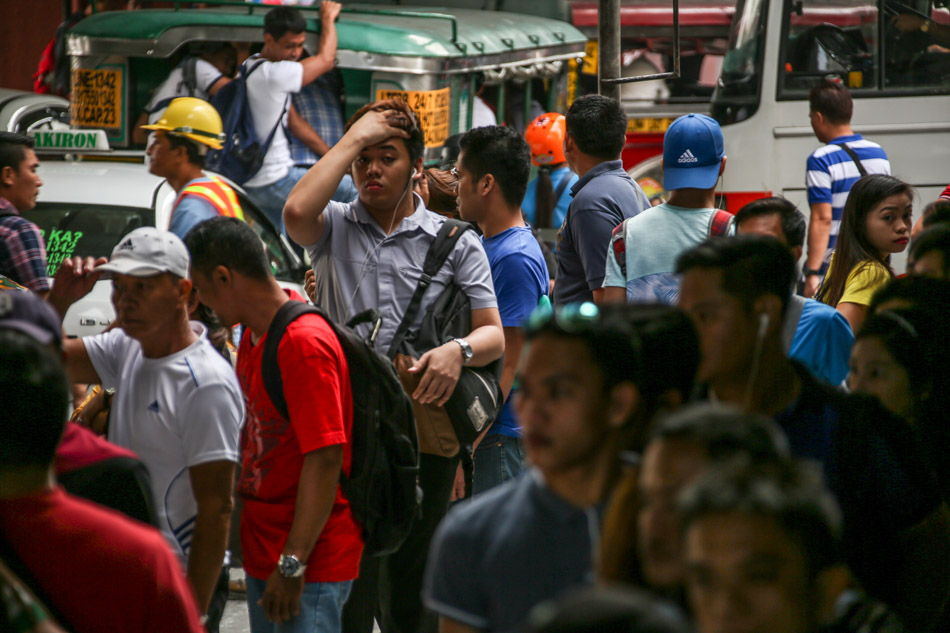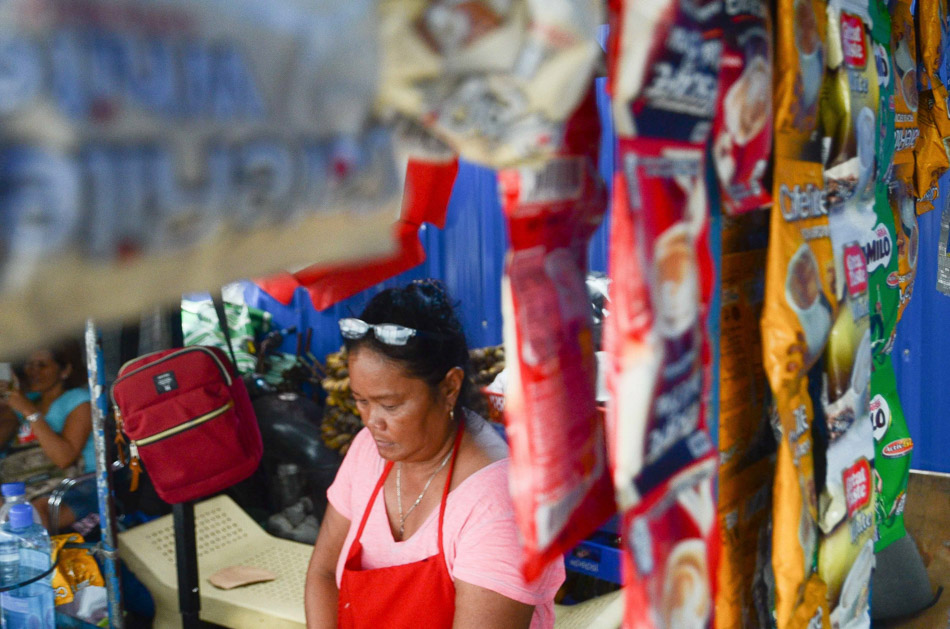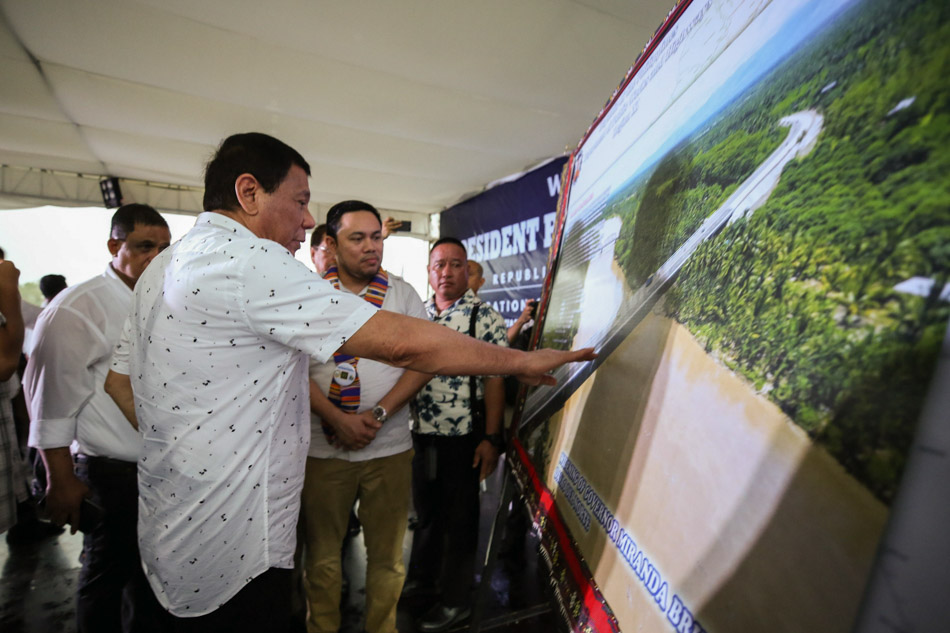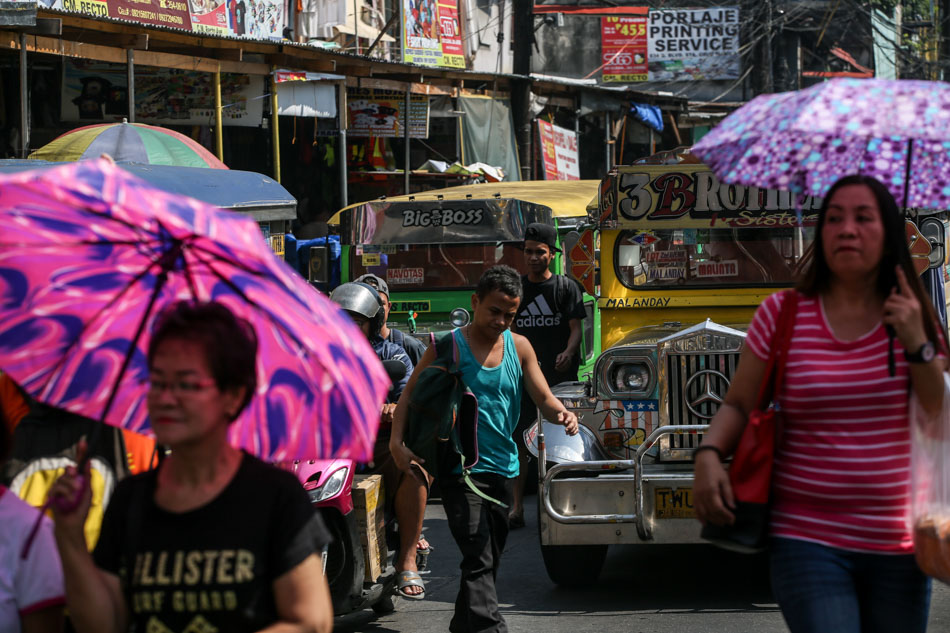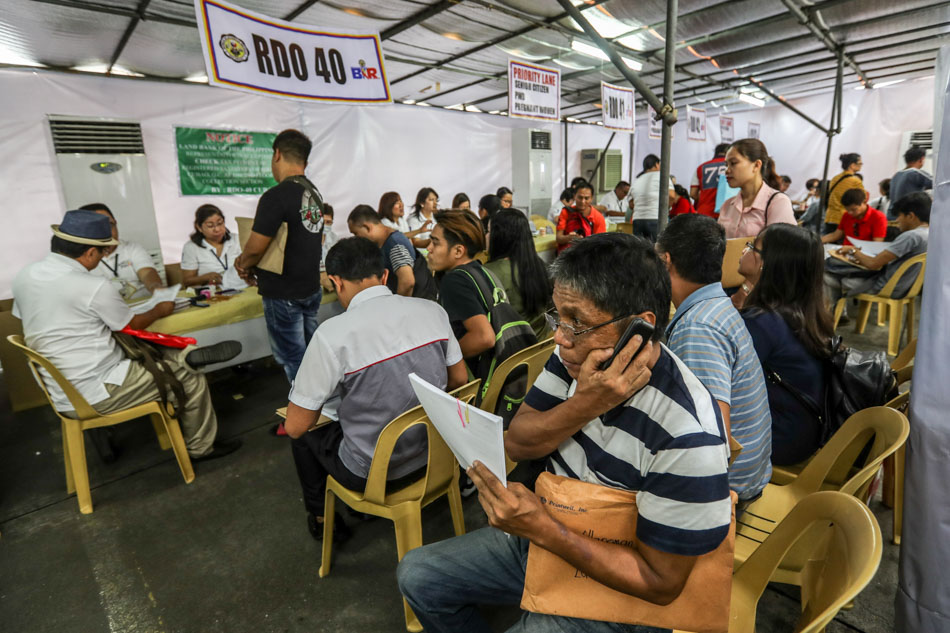Duterte tax reform medicine: Bitter or sweet? | ABS-CBN

Welcome, Kapamilya! We use cookies to improve your browsing experience. Continuing to use this site means you agree to our use of cookies. Tell me more!
Duterte tax reform medicine: Bitter or sweet?
Duterte tax reform medicine: Bitter or sweet?
Patrick Quintos,
Trishia Billones,
Katrina Domingo and Joel Guinto ABS-CBN News
Published Jul 19, 2017 05:57 PM PHT
MANILA - Stuck in yet another rush hour gridlock, taxi driver Rolando Calachan ponders how higher fuel taxes will affect his shrinking income, already squeezed by competition from shiny Uber and Grab cars.
MANILA - Stuck in yet another rush hour gridlock, taxi driver Rolando Calachan ponders how higher fuel taxes will affect his shrinking income, already squeezed by competition from shiny Uber and Grab cars.
But the fatalistic 61-year-old, who witnessed how traffic jams worsened in his 2 decades as a driver, said Filipino resilience would help him pull through, expressing support for President Rodrigo Duterte's tax reform effort.
But the fatalistic 61-year-old, who witnessed how traffic jams worsened in his 2 decades as a driver, said Filipino resilience would help him pull through, expressing support for President Rodrigo Duterte's tax reform effort.
"Ang Pilipino, magaling mag-adjust," Calachan told ABS-CBN News.
"Ang Pilipino, magaling mag-adjust," Calachan told ABS-CBN News.
"Inaabot ko na lang ang pera sa asawa ko, bahala na siya mag-budget," he said, chuckling.
"Inaabot ko na lang ang pera sa asawa ko, bahala na siya mag-budget," he said, chuckling.
ADVERTISEMENT
(I give the day's earnings to my wife. She knows what to do.)
(I give the day's earnings to my wife. She knows what to do.)
It's the same paralyzing traffic that the tax reform hopes to address. Revenues from the new duties will be used to fund up to P9 trillion in new roads, railways and airports, the cornerstone of "Dutertenomics."
It's the same paralyzing traffic that the tax reform hopes to address. Revenues from the new duties will be used to fund up to P9 trillion in new roads, railways and airports, the cornerstone of "Dutertenomics."
Duterte is lowering income tax rates for the middle class and shifting the burden to the ultra-rich in an overhaul that the government says is long overdue.
Duterte is lowering income tax rates for the middle class and shifting the burden to the ultra-rich in an overhaul that the government says is long overdue.
But this will come at the cost of higher fuel taxes, P6 per liter spread over 3 years, and a P10 per liter duty on sugar-sweetened drinks, including soft drinks and instant coffee, raising concern that it would affect the poor.
But this will come at the cost of higher fuel taxes, P6 per liter spread over 3 years, and a P10 per liter duty on sugar-sweetened drinks, including soft drinks and instant coffee, raising concern that it would affect the poor.
"Sino ba ang kumokonsumo nito? Not the rich people. Ito yung mga pangunahing commodity na binibili at kinokonsumo ng normal na Pilipino," said Polytechnic University of the Philippines student council president Elijah San Fernando.
"Sino ba ang kumokonsumo nito? Not the rich people. Ito yung mga pangunahing commodity na binibili at kinokonsumo ng normal na Pilipino," said Polytechnic University of the Philippines student council president Elijah San Fernando.
(Who consumes these? Not the rich people. These are the basic commodities that are bought by normal Filipinos)
(Who consumes these? Not the rich people. These are the basic commodities that are bought by normal Filipinos)
Vegetable vendor Brenda Sta. Ana said it might be time to kick her caffeine addiction. Her husband, Carlito, said he would ask for fare money from their children if transportation costs rise due to fuel taxes.
Vegetable vendor Brenda Sta. Ana said it might be time to kick her caffeine addiction. Her husband, Carlito, said he would ask for fare money from their children if transportation costs rise due to fuel taxes.
"Dapat lang, okay yun," the 61-year Carlito told ABS-CBN News in an interview at the couple's store in Nepa Q-Mart. "Kasi, mahirap naman taasan ng buwis ang mahihirap. Sila ang malaki ang kita e," he said.
"Dapat lang, okay yun," the 61-year Carlito told ABS-CBN News in an interview at the couple's store in Nepa Q-Mart. "Kasi, mahirap naman taasan ng buwis ang mahihirap. Sila ang malaki ang kita e," he said.
(It's just right. It's okay. You can't raise taxes on the poor. It's the rich who are earning big.)
(It's just right. It's okay. You can't raise taxes on the poor. It's the rich who are earning big.)
Minimum wage earners and small businessmen like the Calachan and the Sta. Ana couple don't pay income taxes so they will not directly benefit from the revised rates.
Minimum wage earners and small businessmen like the Calachan and the Sta. Ana couple don't pay income taxes so they will not directly benefit from the revised rates.
However, they will feel the pinch if consumer prices increase, which the government insists will be minimal, spiking inflation by 0.9 point.
However, they will feel the pinch if consumer prices increase, which the government insists will be minimal, spiking inflation by 0.9 point.
Architect Mark Paul Rañada advanced the purchase of his first car, a grey Mazda 2, fearing he would end up paying higher excise tax.
Architect Mark Paul Rañada advanced the purchase of his first car, a grey Mazda 2, fearing he would end up paying higher excise tax.
"If I’d be living in a different reality wherein the proposed excise tax was nothing but an imagination, I’d probably be getting a vehicle 2 years from now," he told ABS-CBN News.
"If I’d be living in a different reality wherein the proposed excise tax was nothing but an imagination, I’d probably be getting a vehicle 2 years from now," he told ABS-CBN News.
According to finance department simulations, while the tax on sub-compacts like the Mazda 2 would be P12,000 higher, the income tax of those who could afford it would be reduced by P20,000.
According to finance department simulations, while the tax on sub-compacts like the Mazda 2 would be P12,000 higher, the income tax of those who could afford it would be reduced by P20,000.
BITTER MEDICINE
Finance undersecretary Karl Kendrick Chua said that for the first time, the Philippines is pushing for higher taxes to investment on the future, not to address current shortfalls, in a testament to the strength of the economy.
Finance undersecretary Karl Kendrick Chua said that for the first time, the Philippines is pushing for higher taxes to investment on the future, not to address current shortfalls, in a testament to the strength of the economy.
Chua said former President Gloria Arroyo's decision to raise the value-added tax rate to 12 percent in 2005 was "bitter medicine" but left the country twice as rich a decade later.
Chua said former President Gloria Arroyo's decision to raise the value-added tax rate to 12 percent in 2005 was "bitter medicine" but left the country twice as rich a decade later.
"We now have the capacity to think very long term. The policies now are about long term development," said Chua, a former World Bank economist.
"We now have the capacity to think very long term. The policies now are about long term development," said Chua, a former World Bank economist.
Rebuilding the country's infrastructure to spur business in the countryside is crucial to the government's plan to lift millions from poverty, he said.
Rebuilding the country's infrastructure to spur business in the countryside is crucial to the government's plan to lift millions from poverty, he said.
"Without tax reform the poor will likely remain poor," Chua told ABS-CBN News. "We don't want business as usual. We want to grow and become prosperous."
"Without tax reform the poor will likely remain poor," Chua told ABS-CBN News. "We don't want business as usual. We want to grow and become prosperous."
Economic managers have billed tax reform as justice for the middle class as higher taxes will be shifted to the ultra-rich, who comprise just 1 percent of the population.
Economic managers have billed tax reform as justice for the middle class as higher taxes will be shifted to the ultra-rich, who comprise just 1 percent of the population.
Chua rejected criticism that the package was anti-poor.
Chua rejected criticism that the package was anti-poor.
Jeepney drivers will be given fuel subsidies and aid to convert to more fuel-efficient engines, doubling their mileage per liter to 8 kilometers from 4 kilometers.
Jeepney drivers will be given fuel subsidies and aid to convert to more fuel-efficient engines, doubling their mileage per liter to 8 kilometers from 4 kilometers.
Cash transfers to the poorest of the poor will also be increased by P1,200 per year, given in 2 separate P600 installments, he said.
Cash transfers to the poorest of the poor will also be increased by P1,200 per year, given in 2 separate P600 installments, he said.
He said fares should not rise as fuel accounts for just 13 percent of the fare. He said this would affect mostly the rich, who account for 51 percent of fuel consumption.
He said fares should not rise as fuel accounts for just 13 percent of the fare. He said this would affect mostly the rich, who account for 51 percent of fuel consumption.
"The economy is so diverse, so strong that it can absorb a price increase. Changes in crude price have little impact on the real economy," he said.
"The economy is so diverse, so strong that it can absorb a price increase. Changes in crude price have little impact on the real economy," he said.
IMPACT ON THE POOR
While not necessarily anti-poor, higher duties on fuel and sweetened drinks would raise the cost of living of the masses, said tax consultant Mon Abrea.
While not necessarily anti-poor, higher duties on fuel and sweetened drinks would raise the cost of living of the masses, said tax consultant Mon Abrea.
"Anything that the poor will buy will definitely impact their budget," he said.
"Anything that the poor will buy will definitely impact their budget," he said.
Former Socio-economic Planning Secretary Solita Monsod said the 4-year cash transfer program might not be enough to help the poor deal with higher consumption taxes.
Former Socio-economic Planning Secretary Solita Monsod said the 4-year cash transfer program might not be enough to help the poor deal with higher consumption taxes.
"You can hide income, but you cannot hide consumption." Monsod said. "They can push for more sin taxes but not the tax on soft drinks because that will affect the poor more."
"You can hide income, but you cannot hide consumption." Monsod said. "They can push for more sin taxes but not the tax on soft drinks because that will affect the poor more."
Monsod the government should instead look at raising taxes on mining.
Monsod the government should instead look at raising taxes on mining.
The government should also focus on pursuing tax evasion cases, which could generate as much as P76 billion, said Freedom from Debt Coalition president Eduardo Tadem.
The government should also focus on pursuing tax evasion cases, which could generate as much as P76 billion, said Freedom from Debt Coalition president Eduardo Tadem.
The economic team should also put more work into curbing smuggling, which can generate P400 billion in revenues, Tadem said.
The economic team should also put more work into curbing smuggling, which can generate P400 billion in revenues, Tadem said.
"The poor do not pay personal income taxes in the first place. They get nothing from it," Tadem said.
"The poor do not pay personal income taxes in the first place. They get nothing from it," Tadem said.
-- with a report from Jekki Pascual, ABS-CBN News
ADVERTISEMENT
ADVERTISEMENT


